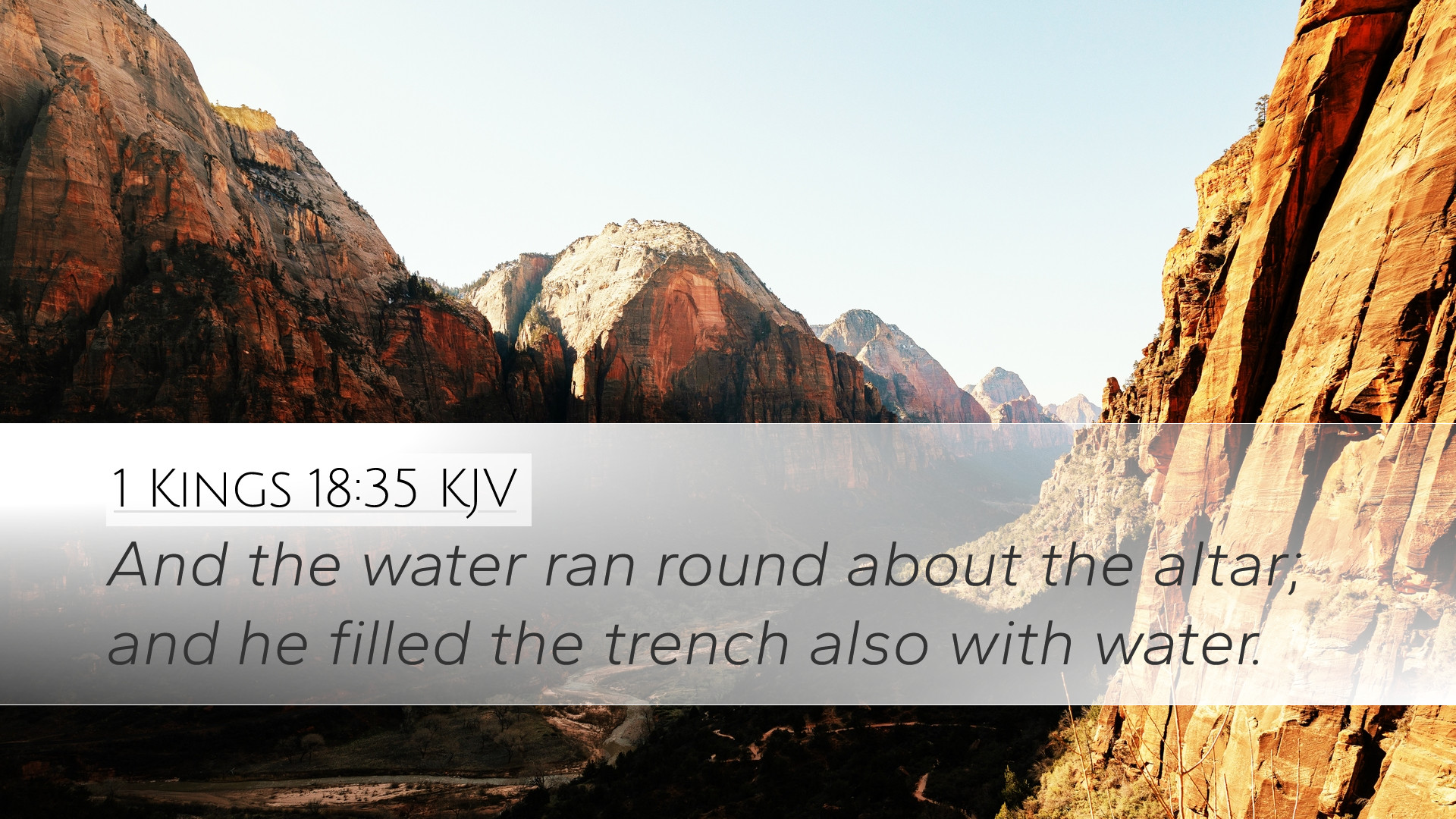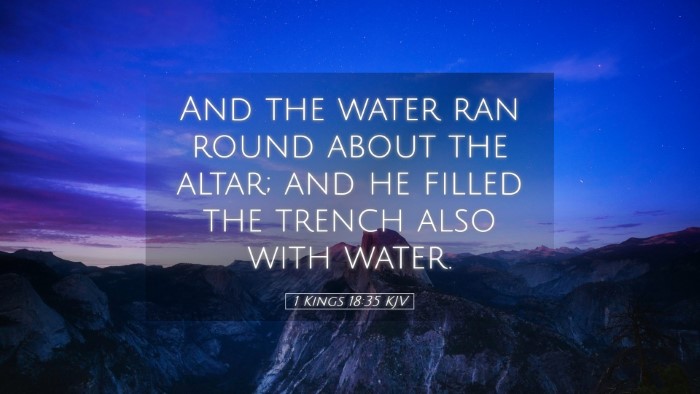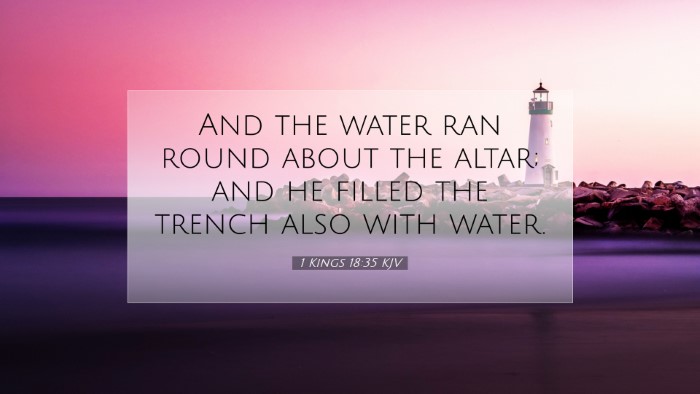Commentary on 1 Kings 18:35
Verse Reference: 1 Kings 18:35 - "And the water ran round about the altar; and he filled the trench also with water."
Contextual Overview
This verse is situated in a pivotal moment during the confrontation between the prophet Elijah and the prophets of Baal on Mount Carmel. This chapter narrates the contest to prove who is the true God—Yahweh or Baal. The significance of the water poured over the altar underlines the gravity of the situation and illustrates God’s power over natural elements.
Commentary Insights
- Matthew Henry's Perspective:
Henry emphasizes that the act of saturating the altar and trench with water was a deliberate demonstration of faith by Elijah. In a time of drought, the abundance of water symbolized trust in God's provision and power. He notes that this was not merely for show, but an indication of the impossibility of human action without divine intervention.
- Albert Barnes' Interpretation:
Barnes highlights the intricacy of the preparation that Elijah undertook. The pouring of water not only served to prevent any trickery (such as fire being secretly applied) but also showcased the miraculous nature of the impending event. The excessive water would enhance the audacity of the miracle that God would perform, thus solidifying the faith of the Israelites.
- Adam Clarke's Analysis:
Clarke elaborates on the symbolism behind the water. He suggests that the water signifies the rarity and value of the resource during the famine, representing the spiritual barrenness of the land. The filling of the altar and trench with such a precious commodity indicates a public acknowledgment of God’s impending intervention in a dire situation, renewing hope among the people.
Theological Implications
This verse reflects several central themes integral to understanding biblical theology:
- Faith and Obedience:
The act of dousing the altar with water was a manifestation of Elijah’s faith amid doubt and despair. It serves as a reminder to believers to demonstrate their faith through actions, especially in challenging circumstances.
- Divine Power vs. Human Impossibility:
The scene starkly contrasts human efforts against divine capability. The impossibility of igniting wet wood underlines that when God acts, even the most unlikely scenarios can yield miraculous outcomes.
- Public Worship and Acknowledgment:
The act was public, inviting the gathered people to witness the demonstration of God’s power. This reflects the importance of communal worship and collective acknowledgment of God’s sovereignty and goodness.
Practical Applications for Modern Believers
The lessons drawn from this verse are pertinent for contemporary Christians:
- Trusting God in Difficult Times:
Just as Elijah trusted God in a time of severe drought, Christians today are encouraged to trust in God’s provision despite challenging circumstances.
- Demonstrating Faith Through Actions:
Believers are urged to show their faith through tangible acts. This can involve serving others, sharing the gospel, or engaging in worship, reflecting a genuine trust in God.
- Expecting Miracles from God:
This passage invites believers to anticipate God’s intervention and miracles in their lives as a testament to His glory and power, encouraging a posture of expectation in prayer.
Conclusion
1 Kings 18:35 powerfully encapsulates the themes of faith, divine intervention, and the visibility of God’s might in contrast to human limitations. For pastors, students, theologians, and scholars, this commentary serves as a rich resource for sermon preparation, teaching, and personal reflection, encouraging an engaged and active faith that anticipates God's work in the world.


